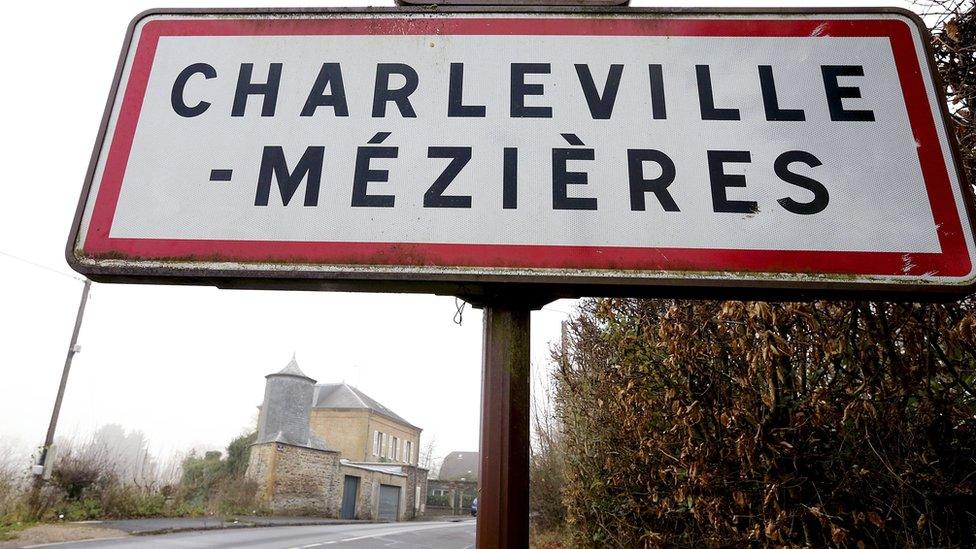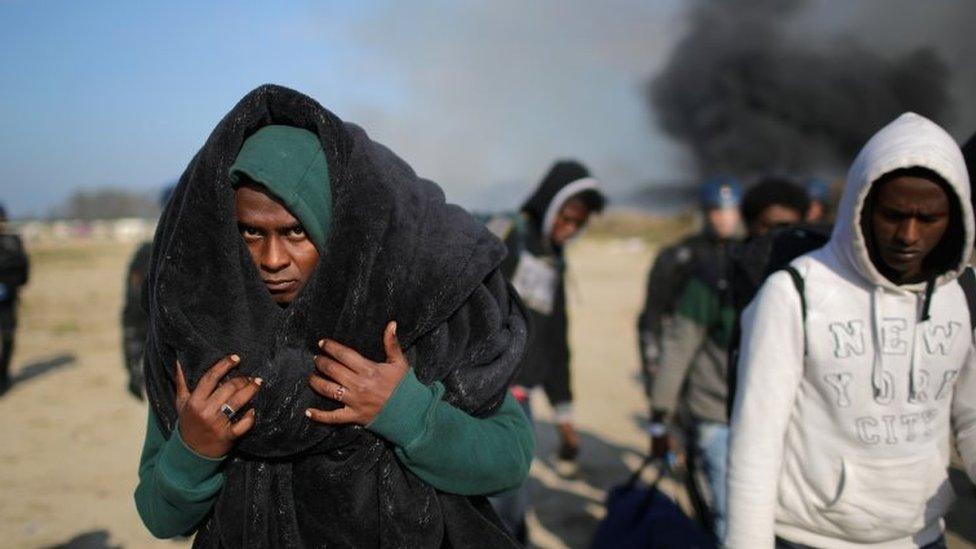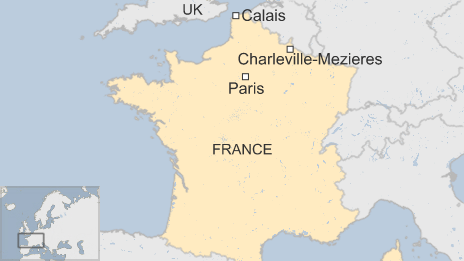Calais migrants: Sense of anger in new host town
- Published

Charleville-Mezieres is about three hours from Calais by road
The city of Charleville-Mezieres is one of the communities chosen by the French government to take in the migrants and refugees displaced by the closure of the Calais jungle.
But there's a sense of anger in the town that it was given little warning about its role in this huge operation - and has no sense of how long it is expected to play host to the new arrivals.
The city mayor Boris Ravignon said he was given very little notice that the first busload of young men from Afghanistan and Sudan was on its way.
"At the beginning of September the government representative in the region, the prefet, told us that the settlements of Calais were being dismantled and that he'd probably have to relocate some people coming from there," the mayor said.
"It's only two days since he called again and told me that a bus with 30 people is coming to Charleville."
'No Plan 'B''
Mr Ravignon insists this is not about compassion fatigue or about a lack of sympathy for the squalid conditions the migrants have endured in Calais. The city has taken in refugee families from Syria and is proud of its record.
He says it's about practicality - and about economic hardship.
"The local economic situation doesn't make it possible for us to welcome these people in good conditions. We are already coping with difficulties in Charleville-Mezieres for people who've been living here for years and years.
"We don't see the point of having another group of 30, 40 or 100 people in desperate need of jobs and housing that we hardly manage to provide to the people living here."

Uncertain future: Migrants in Calais are now being resettled across France
Communities like Charleville are not just shocked by the short notice they've been given of their role in this unfolding crisis. They're concerned, too, that the commitment appears to be open-ended.
An aid worker told me simply: "The government only had a 'Plan A', and that was very simply to get rid of the Calais camp as quickly as possible. There is no 'Plan B' yet for what to do next."
'Transported problems'
The migrants in Charleville-Mezieres are being housed in a terracotta-and-white student accommodation block in a residential district on the edge of town.
There is security - watchful but friendly - and the goal seems to be to watch over the building rather than to control the movement of the city's new guests.
The first arrivals seemed tired and weary of the cold and insanitary conditions they'd been enduring in Calais; for now the chance of warm, safe accommodation and regular hot food is enough.

But very quickly France is going to have to find something to occupy the time of the mostly young men who suddenly find themselves living in a city of which most have never heard.
Charleville is a place of safety for now, although charity workers helping them to settle in their new home admit that many of the more traditional residents are worried about the sudden influx and fearful that the problems which have bedevilled Calais will now simply be transported here.
The problem for Mayor Ravignon is simple: many thousands of migrants are determined to get to the UK, and the easiest, cheapest and most-promising route lies through the coastal cities of northern France.
There's nothing the French government can do to change that simple fact of geography, and the mayor is pessimistic about the prospects for the French government operation.
"I don't think this operation will be a success at all," he said.
"They have managed to erase the problem in Calais but we are running the risk of having smaller problems all across the country. I don't see the point in doing that."
A charity official made much the same point.
"It's about three hours from here to Calais by road. That is nothing to people who've made their way all the way to Charleville-Mezieres mainly on foot. They can try again at any time," she said.
France may believe it has solved the problem of the Calais migrants and the camp they built - not everyone in France is convinced.